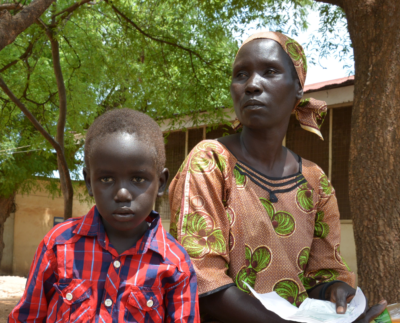SIAPS supports its country partners by increasing access to effective pharmaceutical products and services and by strengthening pharmaceutical governance. Eliminating stock-outs, avoiding delays, and building human resources and institutional capacity are key to defeating malaria. Below are highlights of some key projects.
Building Pharmaceutical Management Capacity in South Sudan
 Malaria is one of the leading causes of mortality and morbidity in South Sudan. Only 17% of children under five years old receive treatment within 24 hours of fever onset, and 50% of pregnant women sleep under insecticide-treated nets. SIAPS seeks to build capacity for effective coordination and pharmaceutical management of malaria control activities. More >>
Malaria is one of the leading causes of mortality and morbidity in South Sudan. Only 17% of children under five years old receive treatment within 24 hours of fever onset, and 50% of pregnant women sleep under insecticide-treated nets. SIAPS seeks to build capacity for effective coordination and pharmaceutical management of malaria control activities. More >>
Q&A: Can We Vanquish Malaria for Good?
 From m-health to vaccine research, there have been many innovations in fighting malaria. Countries are able to detect cases more quickly and be more effective in patient management. More >>
From m-health to vaccine research, there have been many innovations in fighting malaria. Countries are able to detect cases more quickly and be more effective in patient management. More >>
Saving the Most Vulnerable from Malaria in South Sudan
 In response to the 2015 malaria upsurge in South Sudan, SIAPS supplied the country with 635,650 doses of artemisinin-based combination therapy. This contributed to saving the lives of the most vulnerable—children and pregnant women with malaria. More >>
In response to the 2015 malaria upsurge in South Sudan, SIAPS supplied the country with 635,650 doses of artemisinin-based combination therapy. This contributed to saving the lives of the most vulnerable—children and pregnant women with malaria. More >>
The President’s Malaria Initiative
In 2015, malaria claimed 400,000 lives, with the majority being children under the age of five in sub-Saharan Africa. The President’s Malaria Initiative (PMI) has set a goal of eradicating malaria worldwide by the middle of this century. The infrastructure improvements made by SIAPS and its partners have helped PMI make strides toward global eradication. More >>
Supporting the NMCP in South Sudan
 As one of the key partners supporting government efforts to control malaria, SIAPS has been working to build the capacity of the National Malaria Control Program, a government organization responsible for the planning, coordination, and general oversight of all malaria prevention and control activities, including fulfilling Roll Back Malaria and MIS requirements. More>>
As one of the key partners supporting government efforts to control malaria, SIAPS has been working to build the capacity of the National Malaria Control Program, a government organization responsible for the planning, coordination, and general oversight of all malaria prevention and control activities, including fulfilling Roll Back Malaria and MIS requirements. More>>


